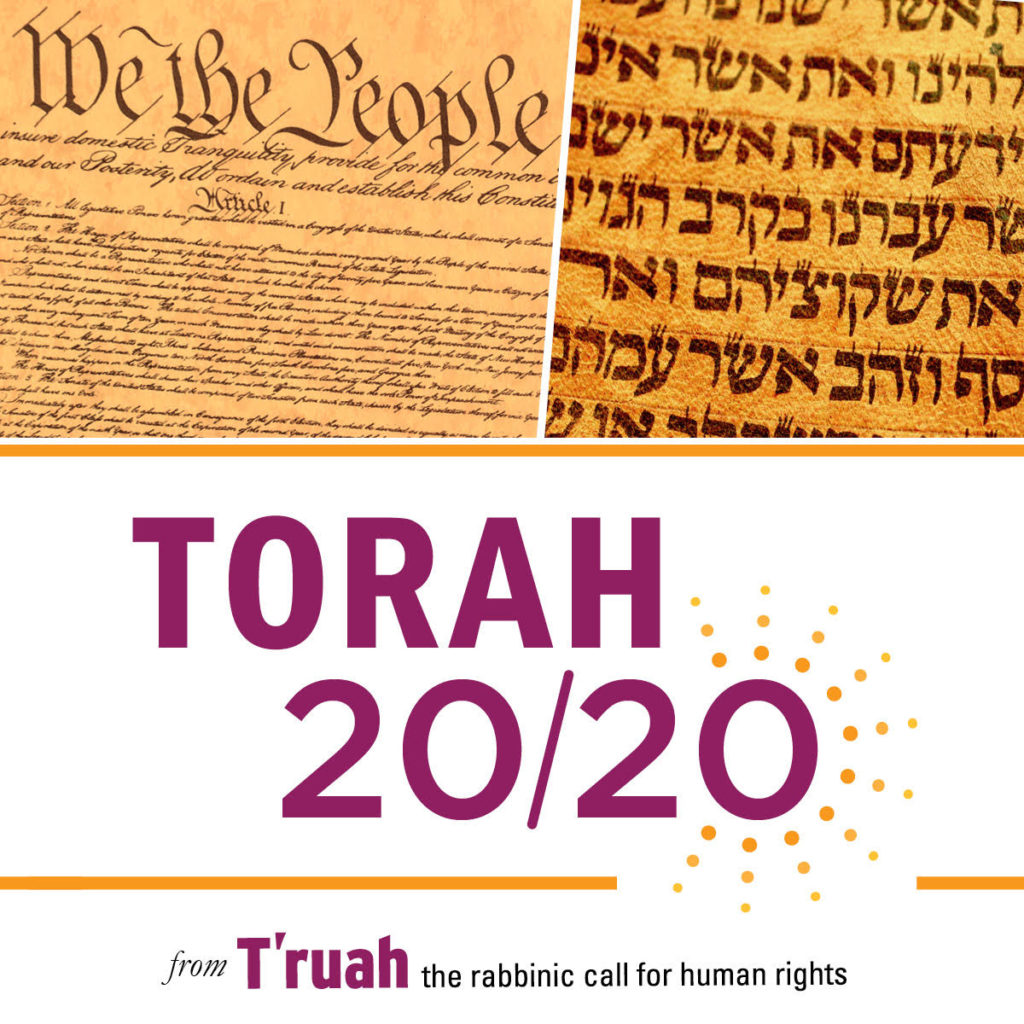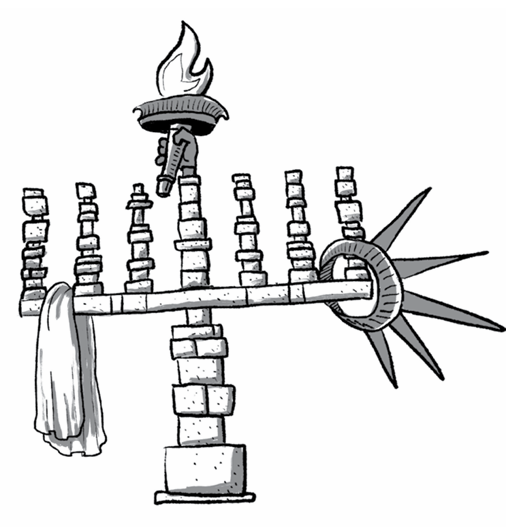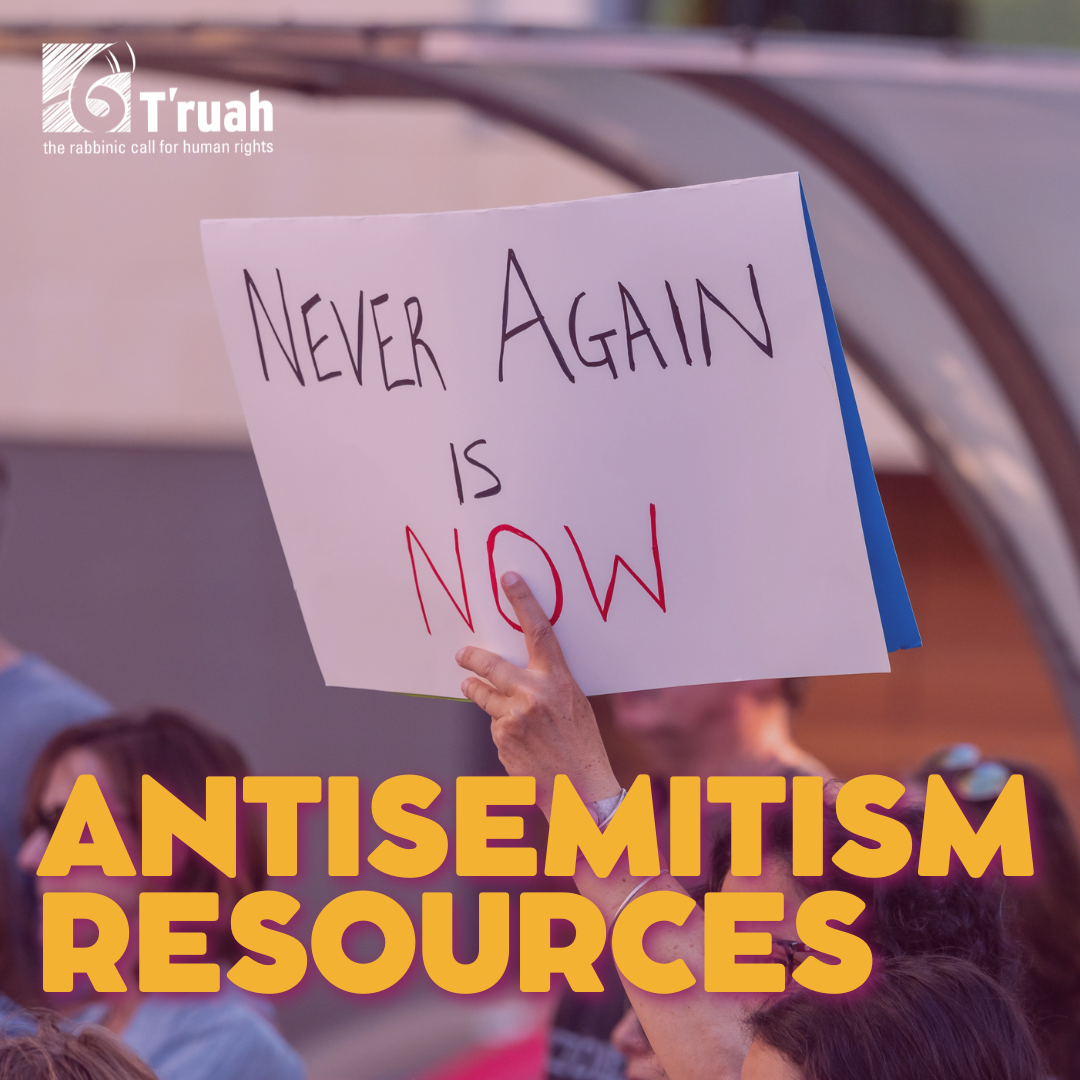Resources
Featured Holiday Resources See all holidays

Torah 20/20: Looking with Fresh Eyes
Rabbi Avi Katz Orlow introduces T'ruah's newest project, Torah 20/20, in this d'var torah for Simchat Torah.
more

Who Doesn’t Get A Clean Slate This Yom Kippur?
Rabbi Marc Katz discusses our criminal justice system's need for authentic belief in teshuvah in this d'var Torah for Yom Kippur.
more

Here We Are Again
Rabbi Rob Dobrusin warns against cynicism and makes the case for hope in this d'var Torah for Shabbat Shuvah.
more

Ritual and Regulation: A Priestly Corrective to Prophecy
Commentary on Parshat Kedoshim (Leviticus 19:1 – 20:27) In the Bible, there are two traditions, the prophetic and the priestly, both of which aim at building a good society, but do so taking very different approaches. In the Haftarah read on Yom Kippur the prophet Isaiah famously demands: “Is such the fast I desire, a...
more

Unetaneh Tokef: Rising to Deal with Uncertainty and Change (Parshat Ha’Azinu)
The question is not “who will live and who will die?” because we are all mortal creatures: “our origin is dust and dust is our end.” Rather, in this specific year ahead, what kinds of transience will we experience, and how will we weather it?
more

A Yovel for the Poor People’s Campaign (Parshat Behar/Bechukotai)
Commentary on Parshat Behar/Bechukotai (Leviticus 25:1 – 27:34) One week from today, Monday May 14, the Poor People’s Campaign: A National Call for Moral Revival will launch across this country. As I prepare for this momentous event, I’m struck by the alignment of Torah and sacred season. This Shabbat when we read of the yovel...
more

Powerful Kings and Degraded Hallelujahs
Right now, our society is in the middle of an important discussion about how we deal with sexual harassment and assault, especially from our leaders and other public figures. With the grossly inappropriate conduct of media moguls, actors, comedians, celebrity chefs, professional athletes, news anchors, business executives, clergy, politicians, and other powerful men coming to...
more

The Fast of Inevitability
“This isn’t a marathon we’re in. It’s a sprint.” I was privileged to hear Rabbi Sharon Kleinbaum say these words to a small group of rabbis last week, and it chilled my blood. It was the exact opposite of what I have been hearing from activists since November 9th, that we need to prepare and...
more

Handbook for Jewish Communities Fighting Mass Incarceration
This handbook provides a comprehensive guide for Jewish communities learning and engaging in issues related to mass incarceration.
more

Pursue Justice So That You May Truly Live
This week’s Torah portion contains one of the most famous justice-related verses in Torah: “צֶ֥דֶק צֶ֖דֶק תִּרְדֹּ֑ף, / tzedek tzedek tirdof” — “Justice, justice shall you pursue!” Although the parsha begins with the injunction to establish judges, this instruction — to pursue justice — doesn’t seem to be aimed solely at those whose job it...
more



